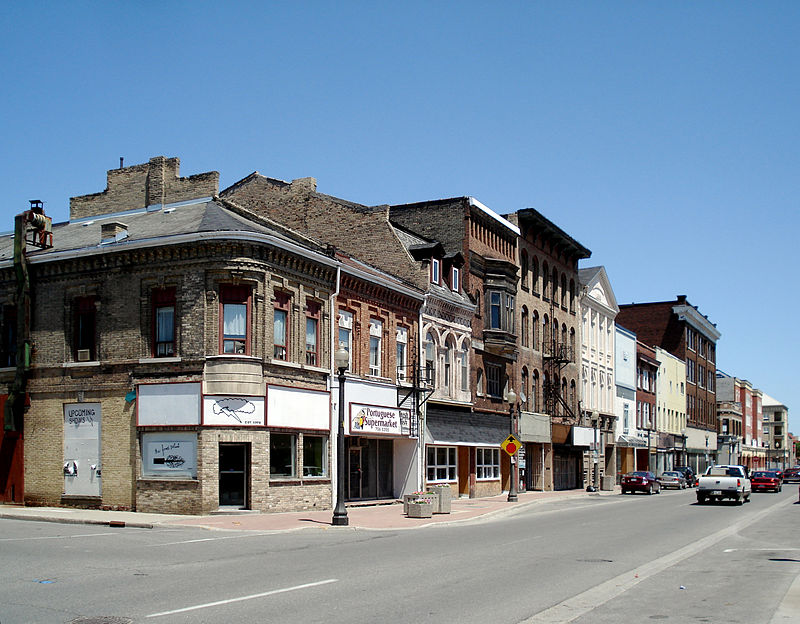Brantford, Ontario, known as the "Telephone City" due to its association with Alexander Graham Bell, boasts a rich history rooted in its early Indigenous settlements and subsequent European colonization. Located along the Grand River, Brantford was named after Joseph Brant, a prominent Mohawk leader who led his people to the area in the late 18th century. The city flourished in the 19th century with the advent of the railway and the establishment of manufacturing industries, becoming a significant industrial and cultural hub in Southern Ontario.
Brantford, Ontario, has a rich history marked by Indigenous heritage, European settlement, industrial growth, and cultural development. Known as the "Telephone City" due to its connection with Alexander Graham Bell, Brantford has played a significant role in the region's history.
Indigenous Heritage
Before European settlers arrived, the area that is now Brantford was inhabited by Indigenous peoples, notably the Neutral, Anishinaabe, and Haudenosaunee nations. The Grand River, which runs through Brantford, was a crucial waterway for these communities, providing resources and transportation routes.
European Settlement and Joseph Brant
The modern history of Brantford began in the late 18th century when Mohawk leader Joseph Brant led his people to the area after the American Revolutionary War. In recognition of his loyalty to the British Crown, Brant was granted land along the Grand River in 1784. He established a settlement that became the foundation for Brantford. The city is named in his honor, reflecting his significant influence in the region.
Early Development
In the early 19th century, European settlers began to arrive, attracted by the fertile land and strategic location. The construction of mills and other infrastructure helped establish Brantford as a burgeoning community. The town was officially incorporated in 1847, signaling its growth and development.
Industrial Growth
Brantford's industrial era began in earnest with the arrival of the railway in the mid-19th century. The construction of the Buffalo, Brantford, and Goderich Railway in 1852 provided vital connections to other parts of Ontario and the United States, facilitating trade and transportation.
The city became a manufacturing hub, producing a wide range of goods, including agricultural equipment, textiles, and household items. The presence of major factories, such as the Cockshutt Plow Company and Massey-Harris, contributed significantly to the local economy and employment.
Alexander Graham Bell and the Telephone
One of Brantford's most notable historical moments is its association with Alexander Graham Bell. In 1874, while visiting his family home in Brantford, Bell conceived the idea for the telephone. He conducted some of the first successful experiments with the device in Brantford, leading to its eventual invention. This connection earned Brantford the nickname "The Telephone City."
20th Century and Beyond
Throughout the 20th century, Brantford continued to evolve, balancing its industrial base with residential and commercial development. The city's population grew, and it expanded its services and infrastructure. However, like many industrial cities, Brantford faced economic challenges as manufacturing declined in the latter part of the century.
In recent decades, Brantford has focused on revitalization and diversification. Efforts have been made to preserve its historical sites, such as the Bell Homestead National Historic Site, while promoting new industries and tourism. The city's rich cultural heritage is celebrated through various events, museums, and community activities.
Modern Brantford
Today, Brantford is a vibrant community that blends its historical legacy with modern amenities. The downtown area has seen significant redevelopment, and the city boasts a variety of parks, educational institutions, and cultural attractions. The presence of Wilfrid Laurier University's Brantford campus has also contributed to the city's revitalization, attracting students and fostering a dynamic community atmosphere.
Conclusion
Brantford, Ontario, with its deep Indigenous roots, pioneering spirit, and industrial heritage, offers a unique blend of historical significance and modern vitality. Its role in the invention of the telephone and its ongoing efforts to preserve and celebrate its past while looking to the future make Brantford a notable and resilient city in Southern Ontario.




